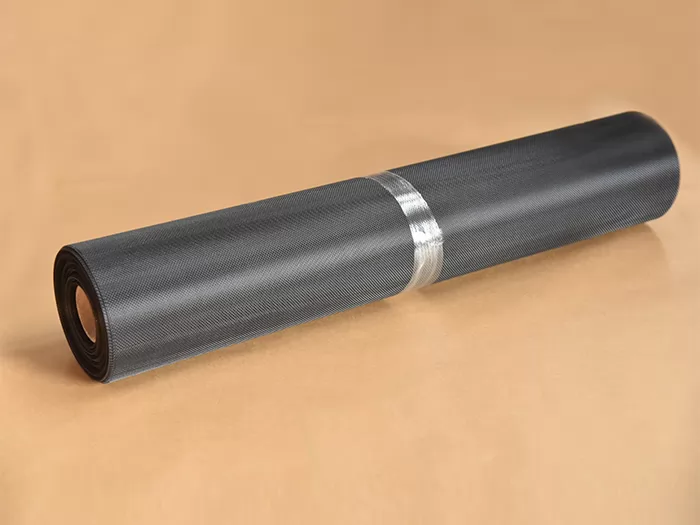Your Position: Home - Wire Mesh - Benefits and Applications of Epoxy Coated Wire Mesh
Epoxy coated wire mesh a popular choice in various industries, is wire mesh that undergoes a coating process where a layer of epoxy resin is applied to its surface. This coating provides a protective barrier against corrosion, enhancing the longevity and performance of the wire mesh.
Epoxy coated wire mesh plays a crucial role in several applications due to its remarkable properties. From industrial settings to residential projects, its importance lies in its ability to withstand harsh environments, resist corrosion, and offer unparalleled durability.

The epoxy coating significantly extends the lifespan of wire mesh by protecting it from corrosion, rust, and other forms of degradation. This enhanced durability ensures long-term performance, even in challenging conditions.
One of the primary benefits of epoxy coated wire mesh is its exceptional resistance to corrosion. This makes it an ideal choice for applications where exposure to moisture, chemicals, or harsh weather conditions is common.
Epoxy coated wire mesh is highly versatile, suitable for a wide range of applications across various industries. From industrial filtration to architectural accents, its adaptability makes it a preferred material for many projects.
In addition to its functional advantages, epoxy coated wire mesh offers environmental benefits. The epoxy coating process produces minimal waste and emissions, making it a sustainable choice for eco-conscious projects.
In industrial settings, epoxy coated wire mesh finds applications in filtration, separation, and reinforcement. Its durability and corrosion resistance make it suitable for demanding environments such as chemical processing plants and wastewater treatment facilities.
In commercial construction, epoxy coated wire mesh is used for architectural purposes, including facades, partitions, and decorative elements. Its aesthetic appeal, combined with its durability, makes it a preferred material for both interior and exterior applications.
In residential projects, epoxy coated wire mesh is utilized for various purposes, including fencing, landscaping, and DIY projects. Its versatility, durability, and low maintenance requirements make it an excellent choice for homeowners seeking long-lasting solutions.
Additional reading:Before applying epoxy coating, proper surface preparation is essential to ensure adhesion and durability. This involves cleaning the wire mesh to remove any dirt, grease, or contaminants that may interfere with the bonding process.
The epoxy coating is applied to the prepared wire mesh using specialized equipment or techniques. Careful attention is paid to achieve uniform coverage and thickness, ensuring maximum protection against corrosion and damage.
Once applied, the epoxy coating undergoes a curing process to harden and bond to the surface of the wire mesh. This curing process may involve exposure to heat, ultraviolet light, or chemical catalysts, depending on the specific type of epoxy used.
Regular cleaning is essential to maintain the appearance and performance of epoxy mesh. Mild detergent and water can be used to remove dirt, debris, and surface stains without damaging the epoxy coating.
Periodic inspection allows for early detection of any signs of damage or corrosion, ensuring timely maintenance and repairs. Visual inspection and testing can help identify areas that may require attention before problems escalate.
In the event of damage or corrosion, prompt repair is necessary to prevent further deterioration and maintain the integrity of the wire mesh. Repair methods may include patching, reapplication of epoxy coating, or replacement of damaged sections.
Epoxy coated wire mesh offers unmatched durability, corrosion resistance, and versatility for a wide range of applications. From industrial filtration to residential landscaping, its protective properties and low maintenance requirements make it an ideal choice for projects requiring long-lasting performance.
Additional reading:345
0
0
Comments
All Comments (0)
Related Articles
2024 Trends in Copper Clad Steel Coil For Russia
As we step into 2024, the demand for advanced materials is on the rise, particularly in the manufacturing and construction sectors in Russia.
By Friday
163
0
0
Understanding Stainless Steel Grades: Your Ultimate Guide
Understanding stainless steel grades is essential as it caters to various industrial applications and provides crucial insights into the material's properties, advantages, and compatibility.
By Cheryl
150
0
0
How Does Carbon Nanotube Technology Revolutionize Electronics?
In an era marked by increasing demand for faster, smaller, and more efficient electronics, carbon nanotube technology has emerged as a revolutionary player in the field of electronics.
By Jesse
166
0
0
How to Choose Low and High Carbon Steel?
# How to Choose Low and High Carbon Steel?
By Fatuma
151
0
0
How Military Grade Standards Ensure Product Reliability?
How Military Grade Standards Ensure Product Reliability?
By becky
155
0
0
How to Choose the Right Rebar for Projects?
Choosing the Right Rebar for Your Projects.
By Melody Liu
129
0
0
Is Electro-Galvanized Wire Worth the Investment for Durability?
Is Electro-Galvanized Wire Worth the Investment for Durability?
By Fatuma
145
0
0
Advantages of utilizing hot rolled steel bars
Are you in the construction industry and looking for the best materials to use for your projects? Look no further than Hot Rolled Steel Bars! These versatile and durable bars offer numerous advantages that make them a top choice for builders and contractors
By Elva
132
0
0